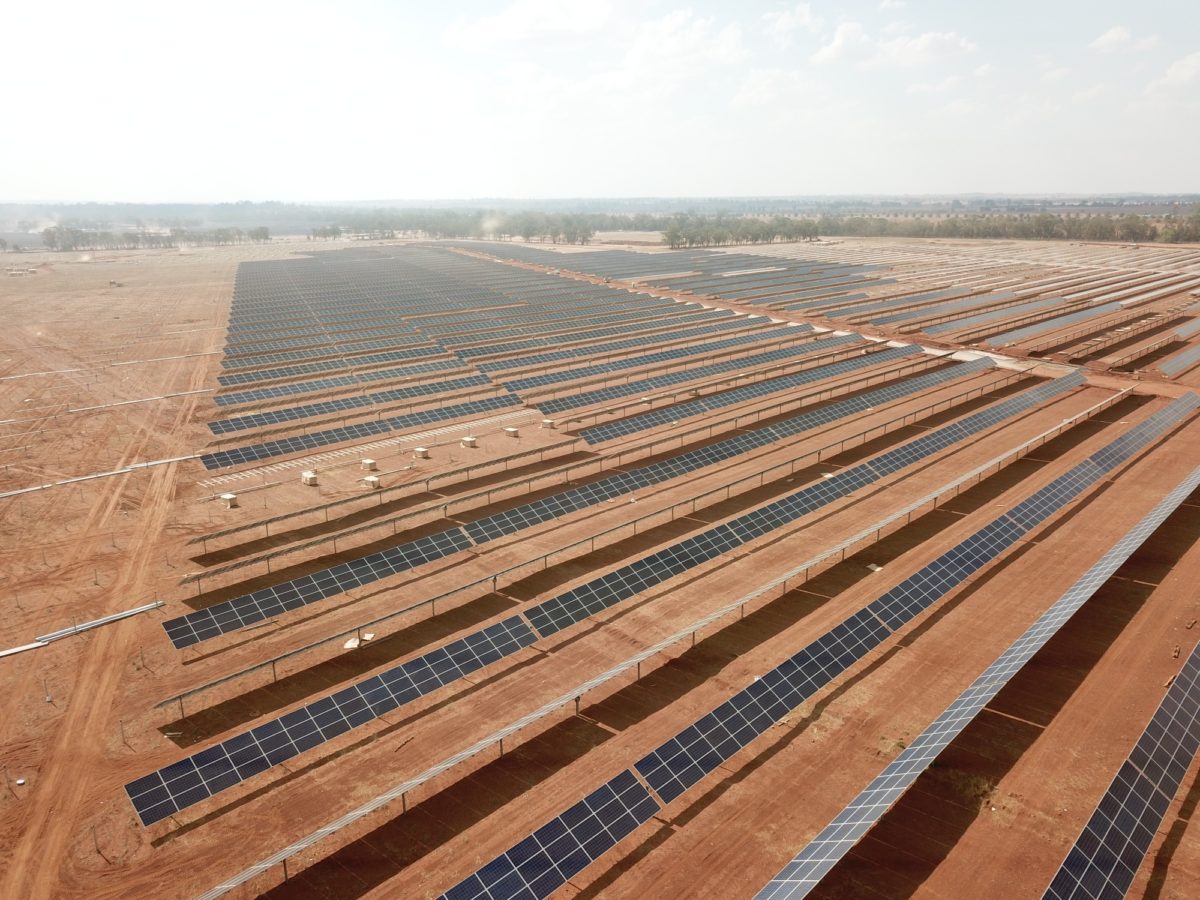Spanish renewables developer Fotowatio Renewable Ventures (FRV) today announced that it has secured financing for its 90 MWac Sebastopol Solar Farm located in grid-challenged south-west New South Wales, in the form of a green loan from ING, a global bank based in Europe, which describes its sustainability policy as to “facilitate and finance society’s shift to a low-carbon future and pioneer innovative forms of finance to support a better world”.
The third loan agreement to be inked between the parties, the Sebastopol signing comes in the wake of ING funding for 85 MWac Winton Solar Farm currently under development in Victoria; and the 69.75 MWac Goonumbla Solar Farm in New South Wales which completed construction in August this year.
FRV Australia’s Managing Director, Carlo Frigerio, said the company is very glad to “receive funding for the project from ING in the form of a green loan, confirming FRV’s commitment to support environmentally sustainable economic activity in the regions where we operate.”
Designated green loans can be issued in accordance with strict principles governing the nature of the project, meaning green projects must provide clear environmental benefits; management of the loan funds; and clear reporting on the application of funds.
Seven projects revolving around the sun
FRV currently has seven solar projects, some operational (Moree, Clare, Royalla and Goonumbla) and others in development (Bluewater, Lilyvale, Winton), in the National Electricity Market (NEM), which represents an accumulated investment since 2012 of some US$700 million, or more than AU$968 million.
FRV acquired the Sebastopol project from German developer and EPC contractor ib vogt in March 2020 and that month signed a power purchase agreement (PPA) for output from the project with Snowy Hydro.
Its Goonumbla Solar Farm was also awarded a PPA with Snowy Hydro in 2018, as part of the electricity generator and retailer’s Snowy Hydro Renewable Energy Procurement Program.
Sebastopol Solar Farm is located 440 kilometres south west of Sydney, just south of the former gold-rush town of Temora, and will connect to the NEM via an existing 132 kV power line that runs from Temora to Lake Cowal.
This part of the Riverina region has been popular with renewable developers because of the connections initially seen to be available along this line. It also falls within the South West Renewable Energy Zone, the third of the Australian Energy Market Operator-identified cost-effective regions for renewable-energy development and transmission to come under consideration as part of the long-term NSW Transmission Infrastructure Strategy.
Grid-lock gripes
However, the sheer number of projects built and proposed for south-west NSW — including the 170 MW Finley Solar Farm, 333 MW Darlington Point Solar Farm, 349 MW Limondale Solar Farm, 150 MW Coleambally Solar Farm, and 255 MW Sunraysia Solar Farm — have caused severe grid delays and punishing Marginal Loss Factors.
The signing of this third finance agreement with LNG demonstrates confidence between parties aligned around sustainability goals, that renewable energy projects in Australia, even in currently constrained areas of the grid, are investible.
Boosting regional roles and skills
As Sebastopol Solar Farm continues its development it is expected to create some 150 jobs in the region during construction, and a further two to three roles for operational staff, as well as locally awarded site maintenance contracts when the project is up and running.
FRV is owned by Abdul Latif Jameel Energy, whose Deputy President and Vice Chairman, Fady Jameel, said of the Sebastopol green loan agreement, “We are grateful for our partnership with ING securing a groundbreaking green loan for the Sebastopol Solar Farm. Together we are encouraging responsible and sustainable infrastructure development in Australia’s renewable energy sector.”
The deal bodes well for FRV’s next cab off the large-scale solar rank, the 100 MWac Chaff Mill Solar Farm, 130 km north of Adelaide near the town of Mintaro, which is currently negotiating application approvals.
This content is protected by copyright and may not be reused. If you want to cooperate with us and would like to reuse some of our content, please contact: editors@pv-magazine.com.









5 comments
By submitting this form you agree to pv magazine using your data for the purposes of publishing your comment.
Your personal data will only be disclosed or otherwise transmitted to third parties for the purposes of spam filtering or if this is necessary for technical maintenance of the website. Any other transfer to third parties will not take place unless this is justified on the basis of applicable data protection regulations or if pv magazine is legally obliged to do so.
You may revoke this consent at any time with effect for the future, in which case your personal data will be deleted immediately. Otherwise, your data will be deleted if pv magazine has processed your request or the purpose of data storage is fulfilled.
Further information on data privacy can be found in our Data Protection Policy.